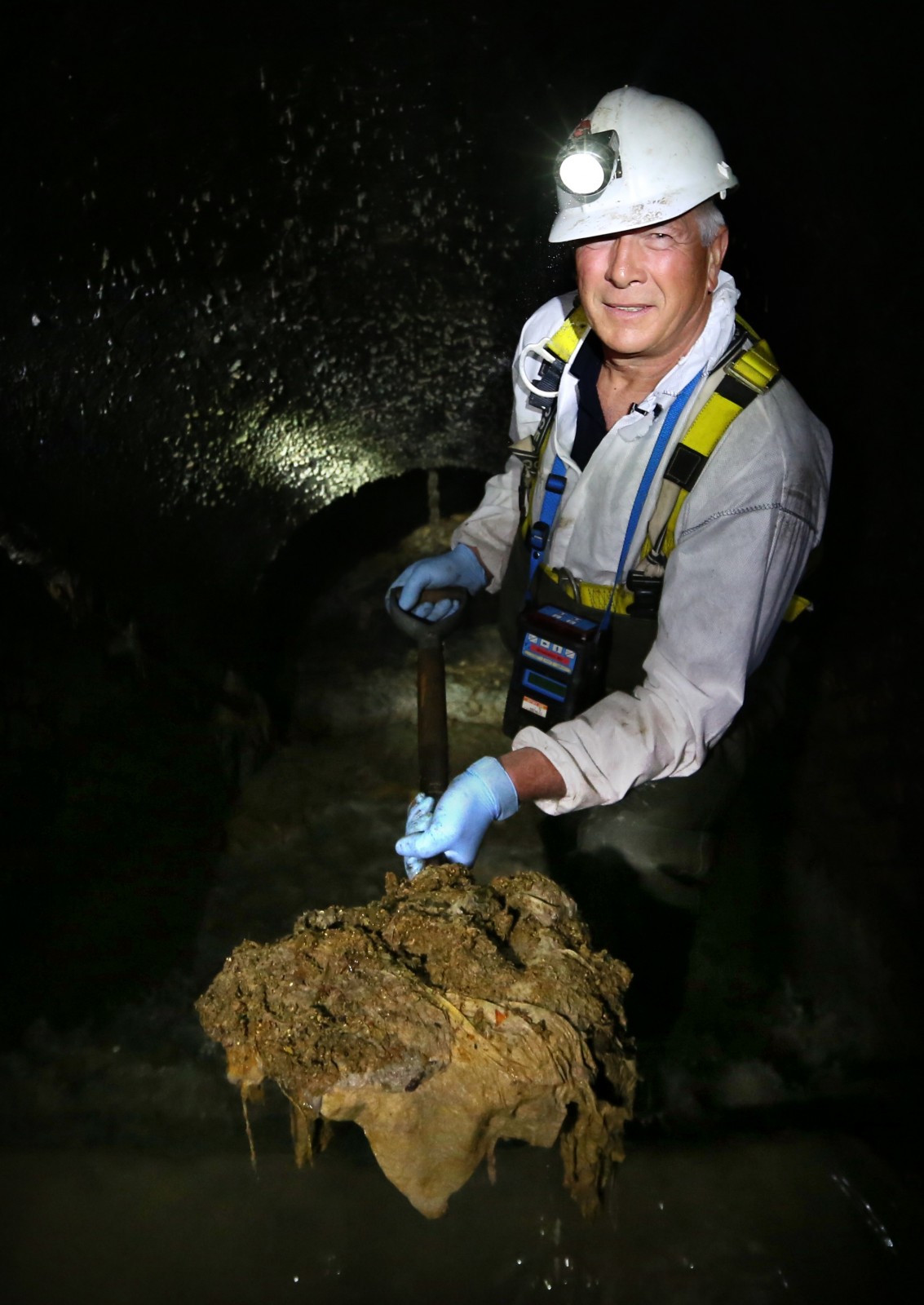Looking back throughout history, water and waste management has predominantly been THE defining factor of the success or collapse of any civilisation.
Thames Water, the organisation responsible from clearing the 15 tonne fatberg living beneath Kingston on Thames that inspired this very project, clears some 55,000 hardened fat blockages from sewers annually to a tune of £12 million. According to the ‘Unie van Waterschappen’ it costs approximately €2,80 to remove 1 litre of fat from the sewer, which is more than a litre of fat costs at the supermarket. Is this not a waste of untapped potential?
According to London’s chief flusher Rob Smith (shown below), burning all the fatty blockages that he and his colleagues remove from the sewers each year, would be enough heat 40000 houses. From 2015, a new type of power plant will burn tonnes of London’s waste cooking oils that clog up its sewers to generate electricity. Burning fuels derived from fats, oils and greases which would otherwise be tipped down the drain or dumped in landfill, the plant will produce 130 Gigawatt hours (GWh) of electricity a year, enough to power just under 40,000 average sized homes. This very practical “solution”, of incinerating the perceived problem of fat, is all well and good, but are we not missing an opportunity here? The sewer as means of production…

